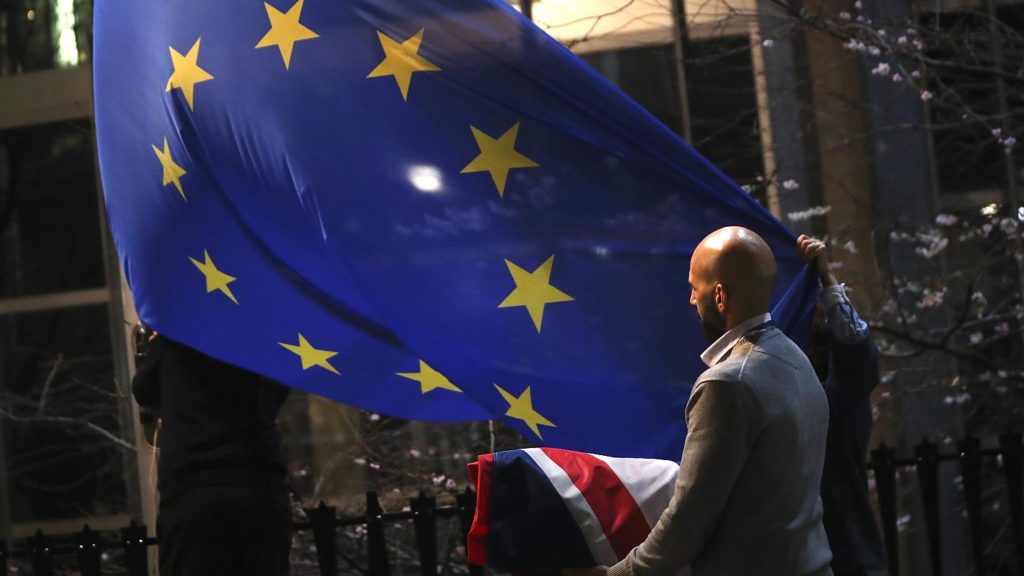After contentious talks, leaders in Britain and the European Union finally reached a deal on Brexit negotiations, leading to a 1,246-page document outlining the details of the trade agreement.
While the deal must be approved by both the British and European parliaments, it is expected that the two sides will reach a deal as the UK officially leaves the EU. In the wake of this agreement, and the process of Britain’s exit from the EU preceding it, one important question following this deal surrounds what will happen next for the European Union.
The exit of Britain for the European Union certainly represents a significant moment in the Union’s history. This not only presents a new economic reality for the EU, but sets an interesting precedent in which member states decide to leave the Union.
The European Union has generally proven itself to be a strong institution, even though it has faced a number of historical challenges. In particular, the Eurozone economic crisis exposed cracks in the EU framework, however the Union has endured in the wake of the largest economic threat to the bloc.
The exit of the United Kingdom for the EU, however, reflects new challenges for the Union aside from the difficulties of economic integration and coordination. Specifically, Brexit presents a social and political upheaval among citizens of a member state against the EU.
So, where does this leave the European Union following Brexit and an official trade agreement between the two parties? Considering what is known at this point, there are two realities which the EU must face. First, France and Germany must maintain an amicable relationship for the foreseeable future. With the UK gone, France and Germany remain the centerpieces to stability in the EU.
While no single country, or two countries, can determine the fate of the entire EU, if tensions begin to rise between France and Germany from this point, the strength of the European Union is almost certain to be hampered. Second, the European Union must face the reality of two internal long-term threats, populism and breakdown in the rule of law.
France and Germany: A Necessary Long-Term Partnership
With the exit of Britain, the EU loses a major piece of the Union’s economic strength. Following this loss, France and Germany become even more economically integral to the EU, as these two countries alone accounted for over 42 percent of EU GDP in 2019.
While France and Germany have been at odds in recent years on a number of issues, response to Britain's exit from the EU, along with handling the uncertainty of problems surrounding the coronavirus, has appeared to bring the two countries closer together.
Franco-German cooperation as central actors within the EU dates back to the Cold War era, yet in the following decades the relationship weakened. This newly reinvigorated relationship between the two countries will need to continue as the European Union moves forward with its governance aims.
Importantly, if France and Germany, the remaining two largest economies within, and strategically important defenders of, the European Union, were to renew tensions or significant disagreements, the stability of the EU would appear increasingly uncertain at a time when the Union is facing greater scrutiny from opponents.
The Dual Challenges of Populism and Breakdown in the Rule of Law
Not only will the Franco-German relationship be of greater importance to the stability of the EU, but the ability for the Union as a whole to address two internal threats, populism and breakdown of the rule of law, will be integral to the future of EU stability.
Discontent with the European Union has long been a strand within European society and politics, but the growing power of parties within governments of member states taking clear stances against EU principles poses a major threat to the legitimacy of the Union.
Notably, leaders within the ruling Law and Justice party in Poland and Fidesz in Hungary have clashed with European leaders and regulatory bodies in recent months over their apparent attempts to undermine rule of law.
Even in larger member states, anti-EU sentiment, lack of trust in the EU, and support for parties such as the AfD in Germany, Five Star Movement in Italy, and National Rally in France, has risen in recent years. These internal pressures threaten the long-term stability of the EU much more moving forward than the exit of the UK after 2020.
What Happens Next?
While the exit of the UK from the European Union represents a significant moment in the economic and political trajectory of Europe, it is important to remember that the EU has faced, and weathered, issues throughout its history. The future of the EU, as well as its relationship with Britain, remains uncertain, but considering what is known at this time, two aspects of EU governance will remain central to the stability of the Union moving forward.
First, cooperation between France and Germany must remain strong in the future, as these two countries became even more significant within the EU after the exit from the second largest economy, and a major actor on the global stage, in the UK.
Second, facing the reality of dealing with internal discontent, reflecting in large part through the channels of populist sentiment and breakdown in the rule of law, is a necessity for countering threats to instability among the EU as a whole. The historic trade agreement reached between the European Union and Britain represents a new era for the EU, one in which cooperation and dealing with internal discontent is a greater necessity than ever before.


